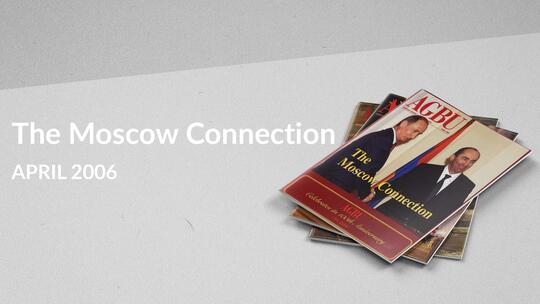by Suren Deheryan and Arpi Harutyunyan
After shutting down as a victim of post-Soviet fallout, Armenal aluminum plant reopened in late 2005 with a $100 million Russian-based investment, and a year of large-scale renovation that should make it one of the three largest foil-producing factories in the Commonwealth of Independent States by 2008.
Opened with great fanfare by Russia’s prime minister, and Armenia’s president on the outskirts of Yerevan, Armenal represents one-fourth of Russia’s total investment in Armenia—a number that is growing rapidly as Russian businessmen are more and more looking south for money-making opportunities.
Now the only foil producer in the Caucasus and Central Asia, Armenal hopes to produce 25,000 tons of product, primarily for home and commercial use, in its first year.
If its ultimate renovation plans are realized, by the end of 2007 Armenal will be producing 12 percent of all the foil in the CIS (representing 12 former Soviet countries, of which Armenia is the smallest).
Armenal restarted operations using pre-processed materials. According to the plant’s director general Georgi Avetikian, by this summer Armenal will be ready to process raw materials into aluminum. “Starting at that stage the plant will become an autonomous enterprise and will receive raw materials from the Russia-based Rusal enterprise,” says Avetikian.
Already, Armenal is processing some 650 tons of aluminum ribbon and is on track to begin exports to Europe and the United States.
One of Armenia’s largest enterprises since the Soviet times, the Kanaker Aluminum Plant was renamed Armenal after becoming the property of Rusal in 2000. Rusal, which operates a smelting plant in Siberia, is one of the three largest aluminum producers in the world. It produces 75 percent of all of Russia’s aluminum and 10 percent of world output.
In acquiring the plant, Rusal beat out Bamo (a Russian firm led by an Armenian, Murad Muradian, which recently purchased the Karen Demirchian Sport & Concert Complex in Yerevan for $5.7 million). The French IGET company and Petersburg Foil Plant had also expressed interest in the Kanaker factory at some point.
Rusal purchased a 44 percent stake, paid for in raw materials. The remaining 56 percent stake in the enterprise (of which 30 percent belonged to the government and 26 percent to the plant’s employees) remained under the government’s control until 2003.
In that year, Rusal became the sole owner and renamed the plant “Armenal”. To secure ownership of the plant, Rusal took on the government’s share, represented by a $1.7 million debt. Following a decision of the board of shareholders, Rusal bought the remaining 26 percent stake for $500,000 and, although the shares nominally belonged to employees, that money was transferred to the state budget. (Former shareholder-employees typically shrug their shoulders and give the “well, this is Armenia” answer when asked how their stocks could get diverted into state funds.)
In the estimation of Rusal’s vice-director Alexander Livshits, the complete makeover of the facility raises expectations for it to become one of the most efficient aluminum product manufacturers in the world.
Re-equipping the plant cost $70 million, of which $20 million was invested by Rusal and the rest taken in loans from German banks.
“Armenia and Russia are strategic partners, and we look to the future with optimism,” Russian Prime Minister Mikhail Fradkov said during his visit to Armenia in 2005 to attend Armenal’s reopening ceremony. “The investment in Armenal is a considerable share of Russia’s investment participation in Armenia’s economy. It does not represent the real potential of our two countries, but it may be a good start.”






